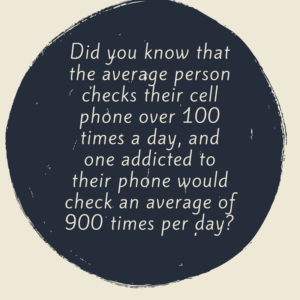 Parents are constantly being told to limit how much screen time their children spend – but their own technology habits could be equally as damaging. Did you know that the average person checks their cell phone over 100 times a day, and one addicted to their phone would check an average of 900 times per day?
Parents are constantly being told to limit how much screen time their children spend – but their own technology habits could be equally as damaging. Did you know that the average person checks their cell phone over 100 times a day, and one addicted to their phone would check an average of 900 times per day?
Being the first generation of parents and caregivers who can access calls, emails, texts and internet, with a reach to our phone, we face a unique and new challenge around how to balance our digital universe and bonding with the children we are caring for.
With smartphone addiction on the rise around the world (about half of the adult population in North America), more studies are exposing the hidden dangers and consequence of increased phone use, and it warrants our attention. We already know from previous studies that limiting this face-to-face contact via extensive phone use could cause problems with development and reduce the level of bond between a parent and a child. A more recent study shows us that parents who spend more time with their phones have a greater tendency to shout at their children, while children also feel an increase in frustration, moodiness, and attention-seeking. Another study by AVG Technologies surveyed more than 6,000 children, ages 8 to 13, from Brazil, Australia, Canada, France, The United Kingdom, Germany, The Czech Republic and the United States. The survery discovered that 32 percent of children felt unimportant when their parents used their phones during meal times, conversations, when watching television, and playing outside. Now, we all know how important they really are, so let’s make sure they know it.
More kids between know how to use a mobile device before they can tie their shoe laces it’s even more important that we set good habits with them, early on. They take their cues from us, so it’s time to lead by example and consider how our phone use might be making them feel.
So what can we do?
If you find you’re on your phone a bit too often, try these tips from Sandee LaMotte, in an article on Smartphone addiction written earlier this month for CNN. Even if you wouldn’t consider yourself a smartphone addict, they offer some helpful boundaries for healthy phone use:
- Turn off your phone at certain times of the day, such as in meetings, having dinner, playing with your kids, and of course, driving.
- Remove social media apps, like Facebook and Twitter from your phone, and only check-in from your laptop.
- Try to wean yourself to 15 minute intervals at set times of the day when it won’t affect work or family life.
- Don’t bring your cell phone and it’s harmful blue light to bed; use an old fashioned alarm to wake you.
- Try to replace your smart device time with healthier activities such as meditating or actually interacting with real people.
